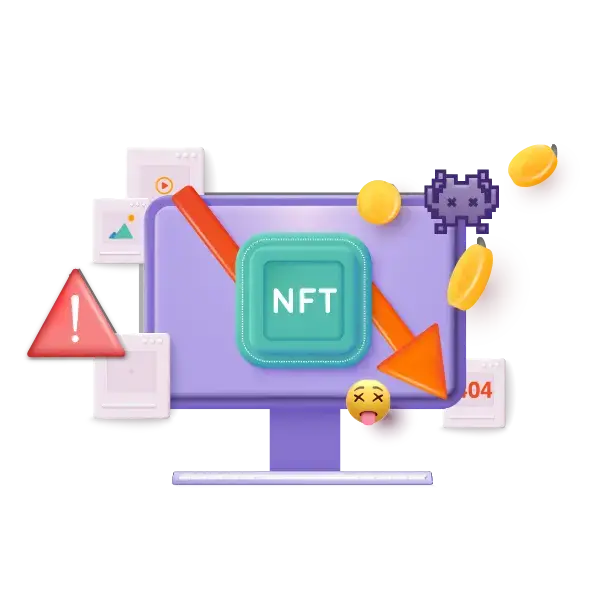- cross-posted to:
- [email protected]
- [email protected]
- cross-posted to:
- [email protected]
- [email protected]
TL;DR: The NFT market has drastically declined since its peak in 2021, with most NFT collections having no value. There’s an oversupply of NFTs, leading to a buyer’s market, and environmental concerns due to energy consumption. Top NFTs also struggle to maintain value, and the future of NFTs depends on utility and genuine value rather than speculation.



NFT’s are nothing more than digital receipts. They do not stop copying what ever the receipt points to and they are nothing special at all.
If the web address your NFT points to disappears due to the site shutting down. Your NFT is beyond worthless.
From the Economist.
Quote:
To “own” one means having your ownership recorded on a digital ledger—nothing more.
Digital receipts are easy to do without mining crypto. Just send an email. Use a postgres database. There’s literally nothing offered by nfts that can’t be done less stupidly another way.
Is that like the 4 days of comments Beehaw lost the other day, or like when Amazon decided that people who bought certain ebook, had no longer bought it?
As in, going through data recovery, or through courts? Is that really smarter than having a proof of ownership 24/7 in perpetuity, that you can even sell to others?
They just stop the seller from claiming you no longer have the right to a copy.
Has an NFT as proof of ownership ever actually been tested in a court of law?
Until it does, the claims the NFT shills make mean zero.
I don’t think you understand: a DRM-locked digital content doesn’t need, or care about, “a court of law” to work or not with a given key.
Instead of listening to the shills of GIF NFTs, centralized app/media shops, or centralized governments, try to think about what the technology actually means.
Not even that. The NFT gives you ownership of the NFT itself and nothing more. It doesn’t give you ownership or copyright over whatever the NFT is pointing to. Furthermore the links in the NFT are public and everybody can access them, the NFT does not work as access token to the content.
You could build a system where the NFT acts as access token and where every NFT comes with a license agree that say “Whoever owns this NFT has copyright over work XY”, but nobody has done that yet or at least not at scale.